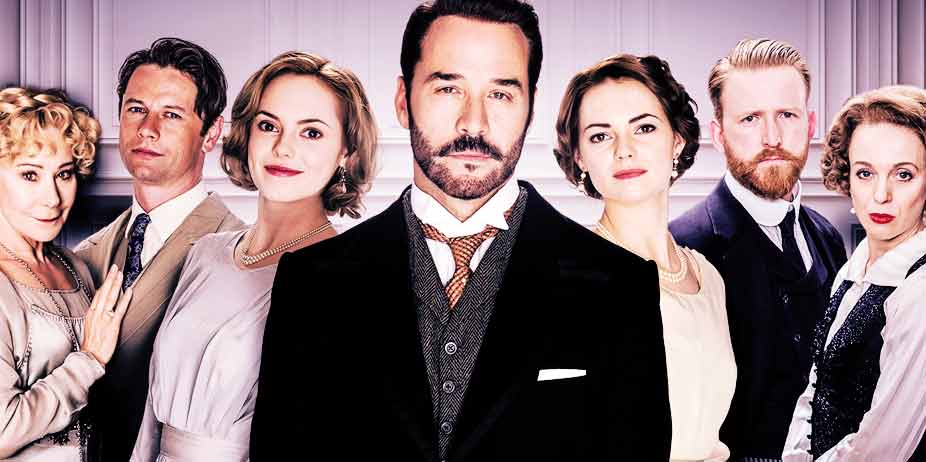
Mr. Selfridge, Season One (2013)
Hoping to capitalize on the success of Downton Abbey, ITV offers another Edwardian drama revolving around the opening of a grand department store in London. Sadly, rather than a sumptuous ten-hour affair, it's a tedious, long-winded experience hampered by moral inadequacies.
Department stores are all the rage in London, and Harry Selfridge (Jeremy Piven) is determined to make his an enormous success. Fresh from America and not sure how British society works just yet, his great ideas and bold ambitions sometimes outweigh his common sense, not to mention his pocketbook. While his wife Rose (Frances O'Connor) tries to break into high society and endures his constant absence from the house, Harry seeks out means of luring passersby into his new establishment. His first gimmick is to employ a small time actress Ellen Love (Zoe Tapper) as the "face of Selfridge's." She soon charms him into a relationship that threatens to cause a scandal.
The lives of those who work for him are no less complicated: affairs are conducted, clerks are fired for walking off with merchandise, and drunken fathers reappear to make their children's lives miserable. This is the plight of sweet young Agnes (Aisling Loftus), hired on a whim and is afraid her position will be taken away from her. Throw in rivalries among shop girls, famous historical figures, great debts owed to haughty socialites, and sexual affairs aplenty and you have Mr. Selfridge. From a purely storytelling point of view, the series isn't bad -- it's well-written and keeps a reasonable pace. Secrets are shared, tragedies unfold, romantic attachments evolve and fall apart, and on occasion it even manages to tug on our heartstrings.
Unfortunately, my fondness for it decreased as it developed into a sexual free-for-all, as hardly any of the characters by the end of the first season have maintained traditional Edwardian purity. The most likable character is Agnes, but we are torn over whether or not to hope she winds up with Victor, simply because both of them carry on an intimate affair with someone else in order to further their own success (she becomes the mistress of a window dresser, he becomes the lover of a socialite who promises to back his restaurant ventures). Mr. Selfridge has a long history of cheating on his wife; he conducts an affair with Ellen, then after a period of faithfulness to his wife, has a one night stand. She is drawn to the idea of an affair with a painter half her age. One of the heads of the department cheats on his terminally-ill wife with another woman; they have been involved for many years. After his wife's death, he jilts his mistress and asks another, much younger woman to be his wife.
Since there is nothing remotely entertaining or uplifting about marital infidelity, and the idea that society was as free with sexuality in the Edwardian age as it is today offends the historian in me, I didn't care for this series and won't tune in to a second. In addition to the lack of morals, Jeremy Piven seems to think that playing an American means storming about shouting all his lines. He's terrible, not just due to his volume but his total inability to emote. He's not the only poor actor in the bunch, either. The costuming is pretty (most of the gowns are recycled from other Edwardian dramas) but my disgust of the behavior involved leaves me favoring The Paradise, which also has a few problems but is far easier to love -- and recommend.
Sexual Content:
Adulterous affairs are referenced, implied, and frequent: couples kiss, take baths together, fall back onto beds together, start to undress one another, etc. Later episodes feature a woman naked in bed with her lover twice; her hair strategically covers her breasts; the first time we see them is at the end of intercourse (noise & movement).
Language:
Profanities here and there, mild abuses of deity.
Violence:
Fist-fights; a car accident; a man strikes his daughter and leaves a bruise.
Other:
Some drinking and smoking. A séance is conducted in which spirits communicate with the living through a medium; the candles blow out. A primitive version of an Ouija board is used to speak with them.
